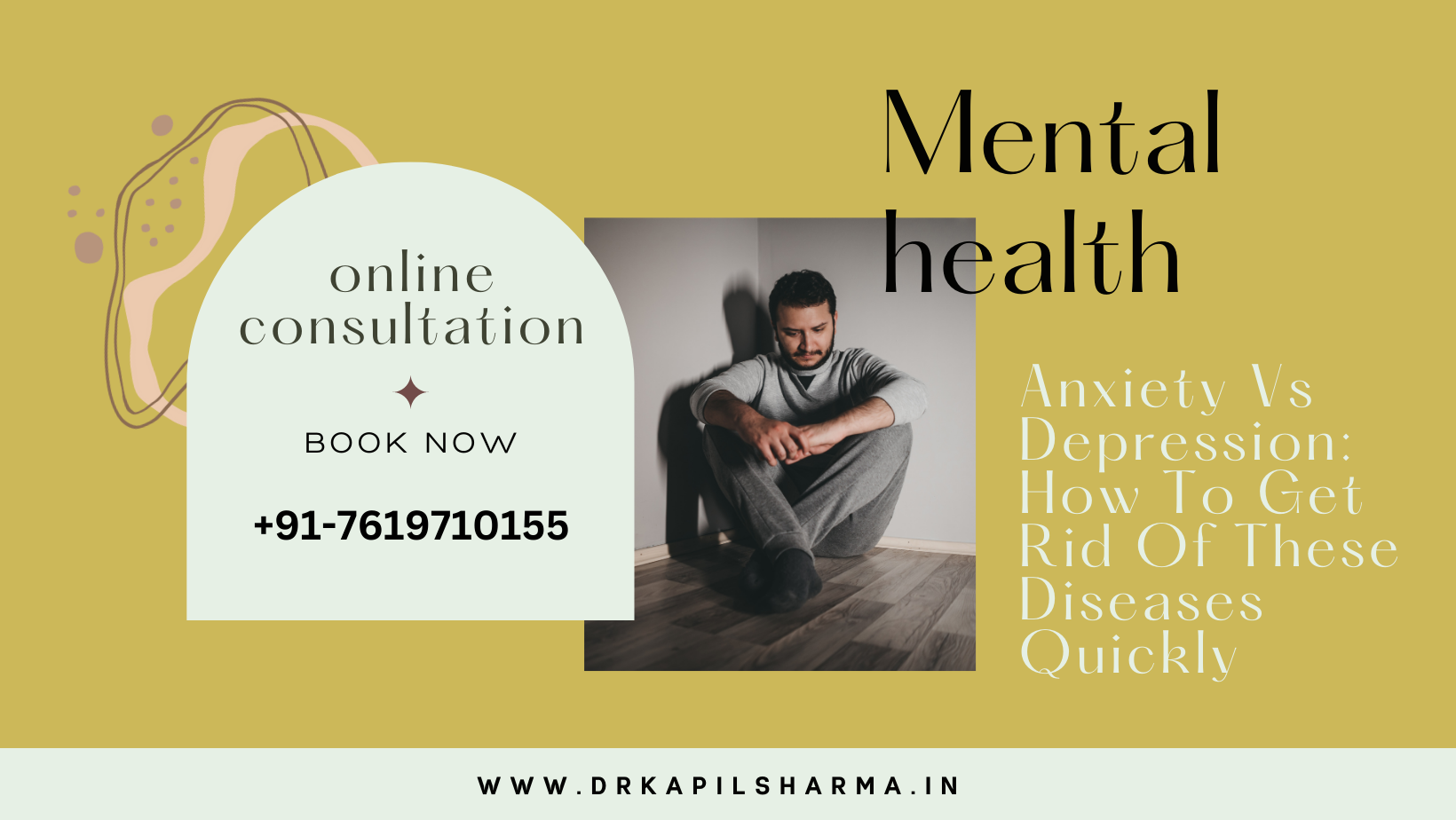
Anxiety And Depression How To Get Rid Of These Diseases Quickly
Anxiety and depression are two common mental health disorders that can have a significant impact on an individual’s daily life. Although they have some similarities, anxiety and depression are different conditions that require different treatment approaches. In this article, we will explore the differences between anxiety and depression and offer some tips on how to get rid of these diseases quickly.
Anxiety is a feeling of worry or fear that is often related to a specific situation or event. It can be a normal reaction to stress, but when it becomes persistent and overwhelming, it can be diagnosed as an anxiety disorder. Some common symptoms of anxiety include restlessness, irritability, difficulty sleeping, and panic attacks.
Depression, on the other hand, is a mood disorder that causes feelings of sadness, hopelessness, and loss of interest in activities that one used to enjoy. Depression can interfere with daily life and lead to a variety of physical and emotional symptoms, such as fatigue, changes in appetite, and difficulty concentrating.
If you are experiencing symptoms of anxiety or depression, there are several things you can do to manage your condition:
- Seek professional help: A mental health professional can diagnose your condition and recommend appropriate treatment options, such as therapy or medication.
- Practice self-care: Self-care activities, such as exercise, meditation, and spending time with loved ones, can help alleviate symptoms of anxiety and depression.
- Avoid alcohol and drugs: Alcohol and drugs can worsen symptoms of anxiety and depression, so it’s best to avoid them.
- Connect with others: Talking to friends and family about your feelings can help you feel less alone and more supported.
- Challenge negative thoughts: Negative thoughts can fuel anxiety and depression. Try to challenge negative thoughts by focusing on positive aspects of your life.
- Get enough sleep: Lack of sleep can worsen symptoms of anxiety and depression. Aim for at least 7-8 hours of sleep each night.
- Consider alternative therapies: Alternative therapies, such as acupuncture or yoga, can help reduce symptoms of anxiety and depression.
In conclusion, anxiety and depression are two common mental health disorders that require different treatment approaches. Seeking professional help, practicing self-care, avoiding alcohol and drugs, connecting with others, challenging negative thoughts, getting enough sleep, and considering alternative therapies are all strategies that can help manage symptoms of anxiety and depression. With the right treatment and support, it’s possible to get rid of these diseases quickly and improve your quality of life.

